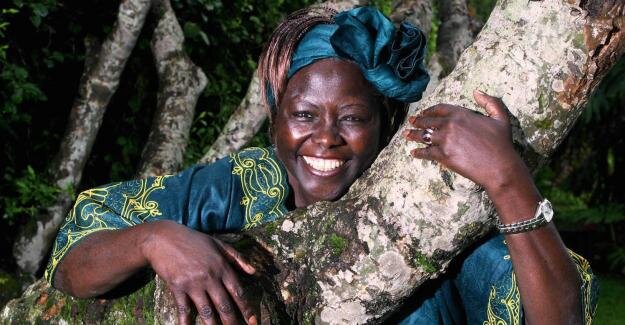Professor Wangari Maathai
Professor Wangari Maathai is credited with pioneering sustainability through her groundbreaking contributions to the Green Belt Movement, we take a look and celebrate Maathai's influence in bringing attention to sustainability.
The need to celebrate Black sustainable contributors?
Though these past few years have brought improvement, too often Black voices are left out of the conversation on environmentalism and sustainability. So is the Global South in general. In mainstream western media, white activism is celebrated, even from places where the climate emergency has so far had a smaller impact than in parts of Africa, America and Asia – ravaged by floods, droughts and other disasters affecting biodiversity.
A symbol of this appropriation was the photograph where the young Uganda activist Vanessa Nakate was posing with other teen activists including Swedish school-striker Greta Thunberg… A photo entirely media cropped to feature ‘Greta’ at the centre, erasing Vanessa altogether! Nonetheless, environmental researchers and activists have been doing an incredible job from the Global South for decades. And one of the most admirable voices in that field was certainly Wangari Maathai, who was a pioneer from the 1960s and has left a mark with her work.
Professor Wangari Maathai’s childhood
Wangarĩ Muta was born on 1 April 1940 in the Nyeri District in central Kenya, under Britain’s colonial rule, in a kikuyu family, the ethnic majority. She was taught English at a young age and sent to a Catholic school. She was sheltered there during the first years of the Mau Mau uprising, which later led to the liberation of Kenya in December 1963.
Portrait of Wangari Maathai taken in 1989 by David Blumenkrantz
The impact of Professor Wangari Maathai’s univeristy years
In September 1960, she was chosen to take part in a programme to study in the United States with 300 other Kenyan students, receiving a scholarship to go to Kansas. She majored in biology, with minors in chemistry and German. She then studied at the University of Pittsburgh for a master’s degree in biology, where she first practiced environmental restoration. Wangari received her MSc in biological sciences in 1966 and returned to Kenya, where she was supposed to start a position as a research assistant to a professor of zoology at University College of Nairobi. Yet, on arrival, the position had been given to someone else, which, she always believed, was due to gender bias.
After two month, she was offered a job as a research assistant in the School of Veterinary Medicine at University College of Nairobi by Professor Reinhold Hofmann. There she met Mwangi Maathai, her future husband, in 1966. She soon started a PhD at the University of Giessen in Germany and, from 1969, worked as an assistant lecturer. In 1971, she became the first Eastern African woman to receive a PhD, from the University College of Nairobi, which became the University of Nairobi the following year.
The Green Belt Movement
Once married and a mother, Maathai continued to teach, as a senior lecturer then associate professor, also the first woman in Nairobi appointed to these positions, and started campaigning for equal benefits for the women working at the university. Her interest in activism grew and she joined numerous civic organisations in the early 1970s, including the Kenya Red Cross Society and the Environment Liaison Centre, established in 1974.
To her, environmental degradation soon appeared at the root of most of Kenya’s problems, and when her husband became an elected Member of Parliament, she started campaigning for more jobs in environmental restoration and tree planting. Only a few years later she founded the Green Belt Movement, encouraging women especially to create tree nurseries. The indigenous, grassroots, and non-governmental organisation, based in Nairobi, took a holistic approach to development by focusing on environmental conservation, community development, capacity building, and women’s rights.
Wangari Maathai
In 2003, then divorced, she herself became an elected Member of the Parliament of Kenya, serving as assistant minister for environment and natural resources in the government of President Mwai Kibaki. A social, environmental and political activist, Wangari Maathai became the first African woman to win the Nobel Peace Prize in 2004. She passed away on 25 September 2011 but her legacy is immense and unforgettable, an inspiration for environmentalists in Africa.



